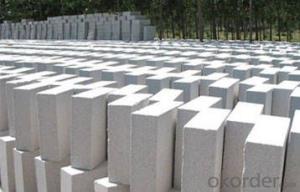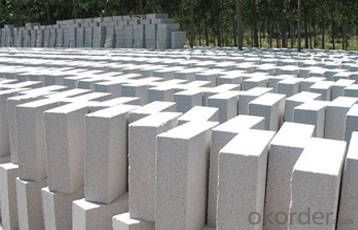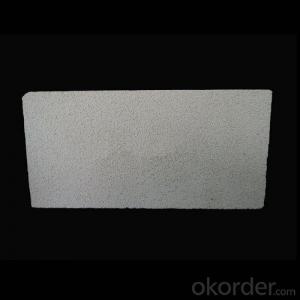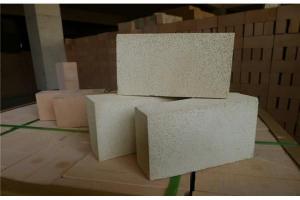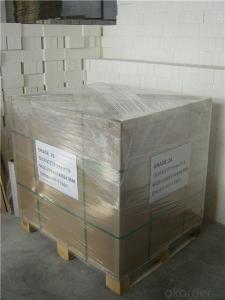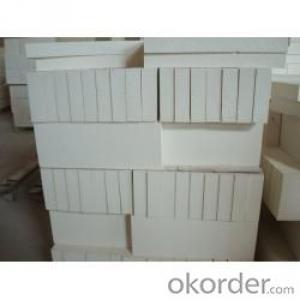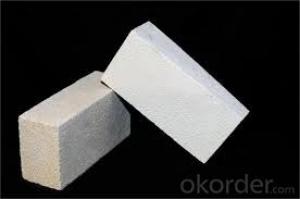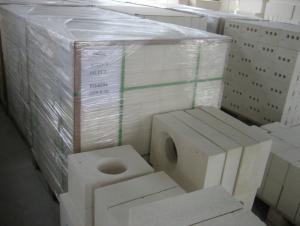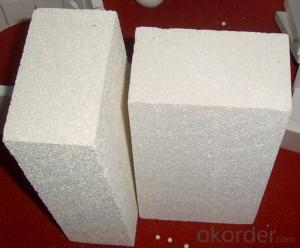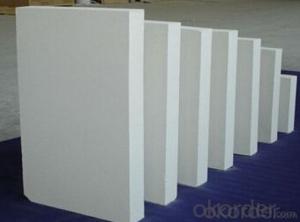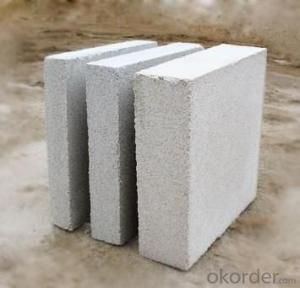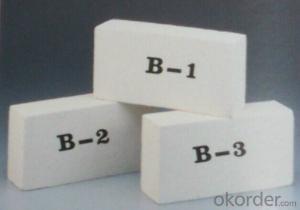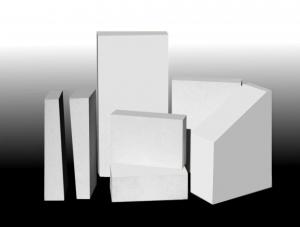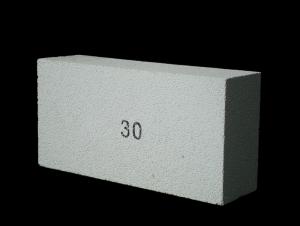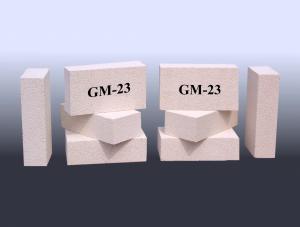Insulating Fire Brick - Refractory GJM Mullite Insulation Brick GJM-23
- Loading Port:
- Shanghai
- Payment Terms:
- TT OR LC
- Min Order Qty:
- 10 m.t.
- Supply Capability:
- 1000 m.t./month
OKorder Service Pledge
OKorder Financial Service
You Might Also Like
Specifications
mullite insulation brick
1. Low thermal conductivity
2.High hot compressive strength
3.Perfect Energy saving
Light weight mullite insulation furnace bricks refractory for sale
Advantage
1. Low thermal conductivity
2.High hot compressive strength
3.Perfect Energy saving
Description:
Lightweight mullite kiln bricks refractory for sale are made from good quality and superpure raw materials, with strictly classified fillings according to their grades. These fillings can form a uniform pore structure after burnt during the process of manufacture. Each grade of products has unique design to meet different thermal, physical and chomical demands.
Application:
Mullite insulation furnace bricks refractory material can be used in linings or heat-insulating materials of the industries, such as, ethylene pyrolysis furnaces, tubular furnaces, reforming furnaces of synthetic ammonia, gas generators and high-temperature shullte kilns, etc
Mullite Insulation furnace refractory material can be used as working lining, where contact with flames directly. This kind of brick can save the kiln energy very much
- Q: Are insulating fire bricks suitable for use in oil refineries?
- Insulating fire bricks do not typically suffice in oil refineries due to their inability to withstand the corrosive and abrasive nature of oil and its byproducts, despite being designed for high temperatures. Oil refineries involve a complex process of refining crude oil into various petroleum products, which often exposes materials to harsh chemicals and high temperatures. Instead, refractory bricks or castables specifically tailored to endure the corrosive and abrasive conditions present in the refining process are commonly employed. These refractory materials possess chemical resistance, high strength, thermal shock resistance, and the ability to withstand the extreme temperatures encountered during refining. Moreover, oil refineries necessitate materials that offer excellent insulation properties while also being durable and resistant to thermal stress. While insulating fire bricks possess good insulation properties, they may not possess the necessary durability and resistance to thermal stress demanded in the demanding environment of an oil refinery. Hence, it is advisable to utilize refractory bricks or castables that are designed specifically for oil refineries. These materials can provide the requisite resistance against chemicals, high temperatures, and thermal stress, ensuring the refinery operates safely and efficiently.
- Q: Are insulating fire bricks resistant to thermal stress?
- Insulating fire bricks have the ability to resist thermal stress. These bricks are specifically designed to endure high temperatures and fluctuations without cracking or breaking. They are constructed from refractory materials that possess exceptional thermal insulation properties and can tolerate extreme heat. Insulating fire bricks possess a low thermal conductivity, allowing them to effectively resist heat transfer and maintain their structural integrity even when exposed to rapid temperature changes. They find common applications in kilns, furnaces, and fireplaces, where thermal stress is a major concern. In essence, insulating fire bricks are engineered to offer dependable and long-lasting insulation while enduring the thermal stress associated with high-temperature environments.
- Q: Are insulating fire bricks resistant to acids?
- Insulating fire bricks, also known as refractory bricks, are generally resistant to acids. These bricks are made from high temperature-resistant materials such as silica, alumina, and other refractory oxides, which provide excellent resistance to chemical attack. However, it is important to note that the level of acid resistance can vary depending on the specific composition and manufacturing process of the insulating fire bricks. It is recommended to consult the manufacturer or supplier for detailed information about the acid resistance of the specific type of insulating fire bricks being used.
- Q: How do insulating fire bricks help reduce heat loss through conduction?
- Insulating fire bricks are designed to minimize heat loss through conduction by utilizing their unique properties. These bricks are made from a special type of lightweight refractory material, such as ceramic fibers or a combination of high-alumina and silica, which have low thermal conductivity. The low thermal conductivity of insulating fire bricks helps to reduce heat transfer by conduction. When heat is applied to one side of the brick, the low thermal conductivity of the material prevents the rapid transfer of heat to the other side. This means that less heat is lost through the brick via conduction, resulting in improved insulation and energy efficiency. Furthermore, insulating fire bricks often have a high porosity, which creates air pockets within the material. These air pockets act as barriers to heat transfer, as air is a poor conductor of heat. By trapping air within the brick's structure, the insulating fire brick effectively slows down the movement of heat, further reducing heat loss through conduction. Additionally, insulating fire bricks have a high melting point, allowing them to withstand extreme temperatures without deforming or breaking down. This property ensures that the bricks can effectively insulate against heat transfer even in high-temperature environments, such as furnaces or kilns. In summary, insulating fire bricks help reduce heat loss through conduction by virtue of their low thermal conductivity, high porosity, and high melting point. These bricks effectively limit the transfer of heat from one side to the other, minimizing energy loss and improving insulation efficiency.
- Q: Can insulating fire bricks be used in rocket stoves?
- Yes, insulating fire bricks can be used in rocket stoves. Insulating fire bricks are designed to withstand high temperatures and provide excellent insulation, which makes them ideal for use in rocket stoves. They help to retain heat efficiently, ensuring better combustion and increased fuel efficiency in rocket stoves.
- Q: Can insulating fire bricks be used in the construction of radiant tubes?
- Yes, insulating fire bricks can be used in the construction of radiant tubes. Insulating fire bricks are specially designed to provide excellent thermal insulation, making them ideal for applications where heat retention is important. Radiant tubes are used in high-temperature environments, such as furnaces and kilns, where they are exposed to extreme heat. Insulating fire bricks can withstand these high temperatures and help to minimize heat loss, resulting in improved energy efficiency. Additionally, the insulating properties of these bricks can also help to protect the radiant tubes from thermal shock and prolong their lifespan. Overall, using insulating fire bricks in the construction of radiant tubes can enhance their performance and durability.
- Q: How durable are insulating fire bricks?
- Insulating fire bricks are renowned for their remarkable strength and endurance. These bricks are crafted from top-notch refractory materials like alumina and silica, which possess superb thermal resistance and mechanical robustness. As a result, insulating fire bricks can endure extreme temperatures ranging from 1300°C to 1800°C (2372°F to 3272°F) without compromising their structural integrity. The durability of insulating fire bricks can be attributed to several key factors. Firstly, their low thermal conductivity enables them to effectively insulate heat and prevent thermal shock, which is pivotal for ensuring their long-term sturdiness. Additionally, the high melting point of the refractory materials utilized in their production enhances their ability to withstand intense heat. Furthermore, insulating fire bricks exhibit resistance against chemical erosion and corrosion, making them ideal for diverse industrial applications. They can withstand exposure to harsh chemicals, acids, and alkalis, guaranteeing their durability even in demanding environments. Moreover, insulating fire bricks possess a low density, rendering them lightweight and less prone to cracking or breaking under pressure. This characteristic heightens their durability and facilitates ease of handling during installation or maintenance. In summary, insulating fire bricks are exceedingly durable and capable of withstanding extreme temperatures, thermal shock, chemical erosion, and mechanical stress. Their exceptional durability positions them as the preferred choice for applications such as furnaces, kilns, ovens, and other high-temperature environments where thermal insulation and long-lasting performance are imperative.
- Q: Can insulating fire bricks be used in the construction of lime production linings?
- Yes, insulating fire bricks can be used in the construction of lime production linings. Insulating fire bricks are designed to have low thermal conductivity, which makes them excellent for applications where heat insulation is required. In lime production, high temperatures are required for the calcination process. Using insulating fire bricks in the construction of lime production linings helps to reduce heat loss and improve energy efficiency. Additionally, insulating fire bricks are lightweight and easy to handle, which makes them suitable for lining various parts of lime kilns and other equipment used in the lime production process. Overall, using insulating fire bricks in lime production linings can help to optimize the production process and improve the overall performance of lime production facilities.
- Q: Can insulating fire bricks be used in ceramic kilns?
- Yes, insulating fire bricks can be used in ceramic kilns. Insulating fire bricks are designed to have low thermal conductivity, which means they are able to retain heat more effectively. This makes them an ideal choice for lining the walls of a kiln, as they help to conserve and distribute heat more evenly throughout the kiln chamber. Additionally, insulating fire bricks are lightweight and have a high resistance to thermal shock, which makes them durable and able to withstand the high temperatures typically reached in ceramic kilns.
- Q: Can insulating fire bricks be used for insulation in boilers?
- Certainly, insulation in boilers can make use of insulating fire bricks. These bricks are specially engineered to endure extreme temperatures and offer exceptional thermal insulation. Their thermal conductivity is minimal, resulting in a significant decrease in heat dissipation and an enhancement in the energy efficacy of boilers. Moreover, insulating fire bricks are lightweight and simple to install, rendering them a favored option for boiler insulation. They aid in preserving elevated temperatures within the boiler, facilitating efficient combustion and heat transfer, while simultaneously shielding the outer framework from excessive heat. All in all, insulating fire bricks are a dependable and efficient alternative for boiler insulation.
Send your message to us
Insulating Fire Brick - Refractory GJM Mullite Insulation Brick GJM-23
- Loading Port:
- Shanghai
- Payment Terms:
- TT OR LC
- Min Order Qty:
- 10 m.t.
- Supply Capability:
- 1000 m.t./month
OKorder Service Pledge
OKorder Financial Service
Similar products
Hot products
Hot Searches
Related keywords
